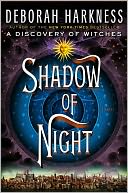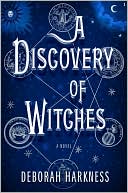Except for the “Rockets’ red glare”, it’s going to be a fairly quiet week here at Reading Reality.
And that’s a good thing.
 About that “Rockets’ red glare” thing, it’s a quote from Francis Scott Key’s memorable but nearly un-singable Star Spangled Banner, and from one of the peculiarly high-pitched bits at that.
About that “Rockets’ red glare” thing, it’s a quote from Francis Scott Key’s memorable but nearly un-singable Star Spangled Banner, and from one of the peculiarly high-pitched bits at that.
The U.S. Independence Day Holiday, July 4, is this Wednesday. Strange, but there don’t seem to be any tours scheduled this week. I wonder why that is?
There’s no Ebook Review Central this week. The whole U.S. is slacking this week. Including yours truly. ERC will be back on Monday, July 9 with Dreamspinner’s May titles.
I’m going to take this opportunity to catch up from the great “sick out” I had last week.
There is plenty scheduled for the week of July 9. It’s really a go-go-go week!
 Looking forward, as I always do on these Sunday posts, I have tours scheduled for Hope’s Betrayal by Grace Elliot on Tuesday, July 10. This regency takes place in the “mother country” of England. So fitting the week after Independence Day.
Looking forward, as I always do on these Sunday posts, I have tours scheduled for Hope’s Betrayal by Grace Elliot on Tuesday, July 10. This regency takes place in the “mother country” of England. So fitting the week after Independence Day.

 And speaking of historicals, Thursday, July 12 the tour books are Forgotten Memories and The Dressmaker’s Dilemma by Theresa Stillwagon. These are U.S. western romances, but not your typical westerns. The setting is a ghost town, and the ghosts are part of the story.
And speaking of historicals, Thursday, July 12 the tour books are Forgotten Memories and The Dressmaker’s Dilemma by Theresa Stillwagon. These are U.S. western romances, but not your typical westerns. The setting is a ghost town, and the ghosts are part of the story.
There are a few, what am I saying, there are always more than a few, books on my lists that really caught my attention from NetGalley and Edelweiss (and Samhain) that are coming out in the next two weeks.

 One is very special. Everyone tried to get an ARC of Shadow of Night by Deborah Harkness early, because her debut last year, The Discovery of Witches, was, well, such a fantastic discovery. But her publisher didn’t release the ARC until after BEA. (She also did signings at ALA). The publication date is July 10, and I have to read this. The early reviews are awesome.
One is very special. Everyone tried to get an ARC of Shadow of Night by Deborah Harkness early, because her debut last year, The Discovery of Witches, was, well, such a fantastic discovery. But her publisher didn’t release the ARC until after BEA. (She also did signings at ALA). The publication date is July 10, and I have to read this. The early reviews are awesome.

 Steampunk is coming on strong early in July. Archer’s Lady, the next book in Moira Rogers’ Bloodhounds series is out on July 3. God Save the Queen by Kate Locke is the first book in her new series The Immortal Empire, and it also comes out on July 3. This is one they ran out of at her signing at ALA. Nico Rosso’s Night of Fire (Ether Chronicles #2) is out at the end of the month. Like I said, July is a big month for steampunk!
Steampunk is coming on strong early in July. Archer’s Lady, the next book in Moira Rogers’ Bloodhounds series is out on July 3. God Save the Queen by Kate Locke is the first book in her new series The Immortal Empire, and it also comes out on July 3. This is one they ran out of at her signing at ALA. Nico Rosso’s Night of Fire (Ether Chronicles #2) is out at the end of the month. Like I said, July is a big month for steampunk!
Steampunk, is so appropriate for July. It is steamy hot here in Atlanta. Record setting hot (108ºF yesterday). Maybe I can just sit here with a cool glass of iced tea and a good book (or 10)!
What’s your favorite way of keeping cool on these hot summer days?








